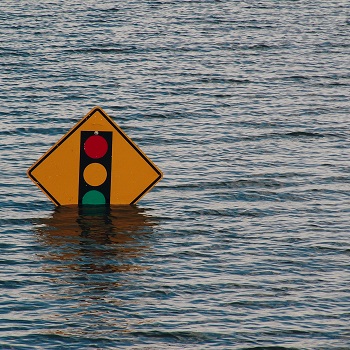Leadership Needed for Europe’s Foreign Policy
A fundamental purpose of the Treaty of Lisbon is to make the European Union an effective force in the modern world, a global player with a power and influence far greater than the sum of its parts. The appointment of a High Representative bestriding Commission and Council, served by the European External Action Service (EEAS), is designed to provide the institutional framework to achieve this aim, in conjunction with the new Council President.
But will the member states appoint people capable of fulfilling such high ambitions? and how much power will governments be willing to concede in making the new system work? In particular how will, say, France and the United Kingdom approach the challenge, given their highly active foreign service and foreign policy traditions? Remember President Sarkozy and Georgia? Who will speak for Europe in the future?
The rumour mill is working overtime as we await the Klaus signature on the Treaty. The Council President could be an effective bureaucrat or a political driver, male or female, from big country or small. Ireland’s Mary Robinson is one possibility for the presidential job. Tony Blair? I don’t think so, given the UK’s absence from the euro, Schengen etc and Blair’s record with Bush. The Netherlands’ Balkenende could run strongly for the High Representative job. It’s fun to speculate, but no one seems to have any real idea.
It does matter who gets the job of High Representative for Foreign Affairs and Security Policy. The external relations aspects of the Treaty imply far-reaching change within the EU institutions. Over the next two or three years thousands of officials will be brought together from the Council Secretariat, from the external services of the Commission and from the member states to form the EEAS, a separate entity to handle the EU’s relations with the outside world. Great leadership qualities will be essential to build an effective service.
There will be some fierce institutional battles before there are any diplomatic ones. On Thursday October 22 MEPs will vote on the Elmar Brok report which outlines the parliamentary view of the EEAS and insists that the service should be clearly affiliated to the Commission and funded from its budget. This would give Parliament a direct say which it would be denied if EEAS and its funding were to be hived off to the Council. ALDE member Andrew Duff warns of a block on the new Commission appointments if the EP does not get its way. So it’s clear that the institutional wrangling is by no means over.
The scale of the changes ahead is considerable. It seems that more than 5,000 people could be transferred from the Commission alone – a fifth of its total complement. They may continue to work in the building where they are now, probably the Charlemagne, but they will no longer be Commission officials (although remaining EU officials). Trade, development and enlargement will remain the Commission’s direct responsibility, but even these departments will be expected to work closely with EEAS.
The European Commission’s 125 or so delegations across the world, plus the Council’s liaison offices, will become European Union embassies, with responsibility for co-ordinating and implementing European policies in their territory. Up to now it has been the embassy of the member state holding the Council Presidency which had this role (or a caretaker embassy in the absence of a national representation). Many officials of the EEAS will be recruited as “temporary agents” from national governments, to serve in the representations and in Brussels.
I gather that the Swedish presidency, COREPER ambassadors in Brussels and the Commission are working intensively to work out the appropriate structure for EEAS. It will then be up to the High Representative, once appointed, to make a formal proposal to the Council in consultation with MEPs and with the “consent” of the Commission as to how the new organisation will function. It looks as if the HR/VP will be appointed before the new Commission has taken over, in which case the current commissioner from that country would stand down. Whoever takes the post will have a formidable task ahead.
Find Out More
-
Why Europe needs a water resilience strategy
February 8, 2024
-
Why the EU can’t risk failure at COP27
November 4, 2022


